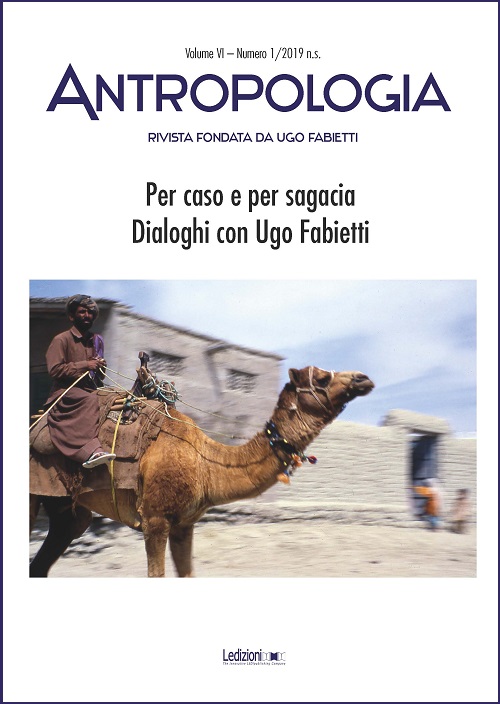Ethnography, "serendipitous" discoveries, theoretical and real friendships
DOI:
https://doi.org/10.14672/ada20191528139-161Keywords:
Middle East, Serendipity, Cultural heritage, Spatial practicesAbstract
Starting from my ethnographic experience in the Middle East, I propose a methodological reflection on the concept of serendipitous discovery, elaborated by Ugo Fabietti and characterized by the combination of chance/sagacity. The dimension of serendipity, or abduction, has marked some focal points of my research on cultural heritage in Syria, from the choice of research contexts and topics to developments in ethnographic inquiry. I propose an expansion of the definition of serendipitous discovery to capture the potential, inherent in such a discovery, to consolidate a certain point of view through reference to the ethnographer's "theoretical friends." This reflection is embedded in a discussion of relationships that, as an anthropologist, I have woven with some of my interlocutors, from which emerges the need for a methodological preparation for the abductive procedure, that is, a predisposition to live the field experience without worrying about wasting time doing seemingly useless things, such as refining the nuances of language, deepening nonverbal skills and attending to relationships with people. This allows for aspects of ethnographic e-xperience that, emerging as secondary elements, become central junctures in the research.
Downloads
Published
Issue
Section
License
Copyright (c) 2019 Antropologia

This work is licensed under a Creative Commons Attribution 4.0 International License.
Authors maintain the copyright of their original work and grant the Journal the right to first publication, licensed after 36 months under a Creative Commons Licence – Attribution, which allows others to share the work by indicating the authorship and first publication in this journal.
Authors may agree to other non-exclusive licence agreements for the distribution of versions of their published work (for example in institutional archives or monographs) under the condition that they indicate that their work was first published in this journal.



